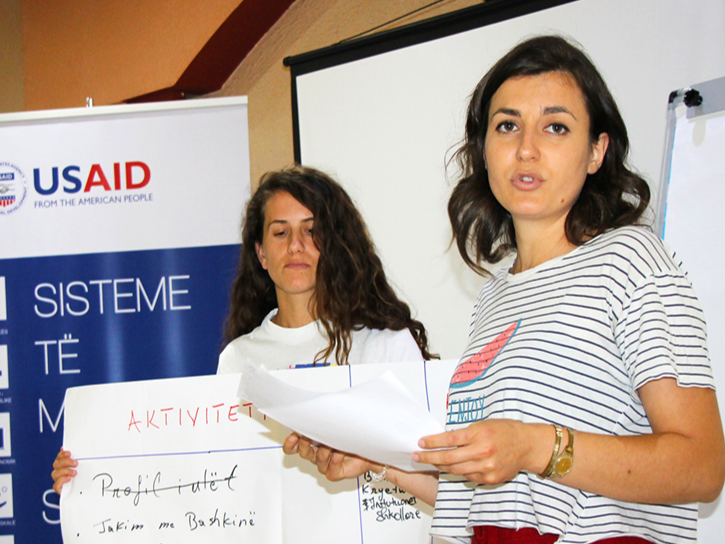Speeches Shim

A democratic society with strong, open and transparent institutions, and driven by the active participation of all members of society, especially women, will ensure the long-term sustainability of peace and security.
Empowering women and girls to serve as powerful peace builders and mediators is critical in mitigating and preventing violent extremism (VE). Despite the progress achieved in Albania’s brief history of democracy, women and girls especially those living in rural areas, continue to be marginalized, disempowered and disenfranchised.
The Women, Peace and Security (WPS) Act of 2017 recognizes that the inclusion of women in efforts to maintain global peace and security makes such efforts more effective. As such, the United States is committed to increasing women’s meaningful participation in peacekeeping and security operations.
As a result, U.S. Agency for International Development (USAID) is partnering with the Department of Defense through the U.S. European Command (USEUCOM) on a project to build community resiliency and sustainability in Albania through activities that will contribute to the prevention of social exclusion, violent extremism, radicalization, marginalization, recruitment and conflict.
The project’s primary focus is to empower women and girls as agents of peace and stability, while also strengthening host country capacity to perform WPS activities at the local, national, and regional levels.
PROGRAM AREAS
SUPPORT FOR ALBANIA’S NATIONAL CVE CENTER
The project will support a full-time Gender Advisor to the Center to serve as a liaison to the National Coordinator’s Office. Specifically, the Gender Advisor will integrate gender in all activities and develop policy papers with recommendations to strengthen the Government of Albania’s ability to implement its forthcoming National Action Plan on Women, Peace, and Security (2018), and build the technical capacity of Center staff to conduct research and analysis of gender specific challenges that can lead to seclusion, violence, exclusion, marginalization, recruitment, and other VE tendencies.
REGIONAL COMMUNITY-BASED ACTIVITIES
The project work with grassroots organizations that have strong knowledge of and experience with imparting youth life skills development training, job skills development training, job placement, professional mentoring and entrepreneurship development. These collaborative efforts will ensure local municipalities and communities have the necessary tools to continue the prevention of violent extremism, reduce marginalization and exclusion at all stages and increase social, political, and economic opportunities. Illustrative activities may include: creating youth councils; peer to peer programming; after school extra-curricular activities (girls clubs, boys clubs, sport and art activities); and, female-focused groups built upon traditional structures identified by the beneficiaries (sewing circles, cooking clubs, neighborhood advocacy groups, classroom parent systems, and other activities as identified.) to increase women’s self-efficacy and feelings of empowerment and belonging which in turn will strengthen the community.
SUPPORT PVE EFFORTS IN THE BALKAN REGION
The project will support the Center to organize the first regional roundtable and workshop with key stakeholders and civil society to address the needs of women and girls vulnerable to violent extremist tendencies. In addition, the project will collaborate trans-nationally at border communities with Kosovo, Macedonia, Montenegro, and Bosnia Herzegovina to address the needs of youth, women, sexual, ethnic, and religious minority populations utilizing local structures and organizations who have access to such populations, for example through Peace Corps Volunteers, on a regular basis.
EXPECTED RESULTS:
- Increased political participation, at local community level or beyond, and decision-making of women to ensure policies and laws are cognizant of female needs
- Increased protection of women and girls from all forms of gender-based violence
- Increased empowerment of women (economic, social, educational, and political)
- Increased awareness of recruitment strategies targeted at women and girls using information, telecommunications and social media platforms
- Increased awareness in the identification and signs of radicalization in family members, community members, friends, and others.
- Increased the capacity of civil society organizations that are led by or serving girls, women, and youth
- Increased awareness of social exclusion and marginalization which lead to potential recruitment and violent extremist tendencies

Comment
Make a general inquiry or suggest an improvement.